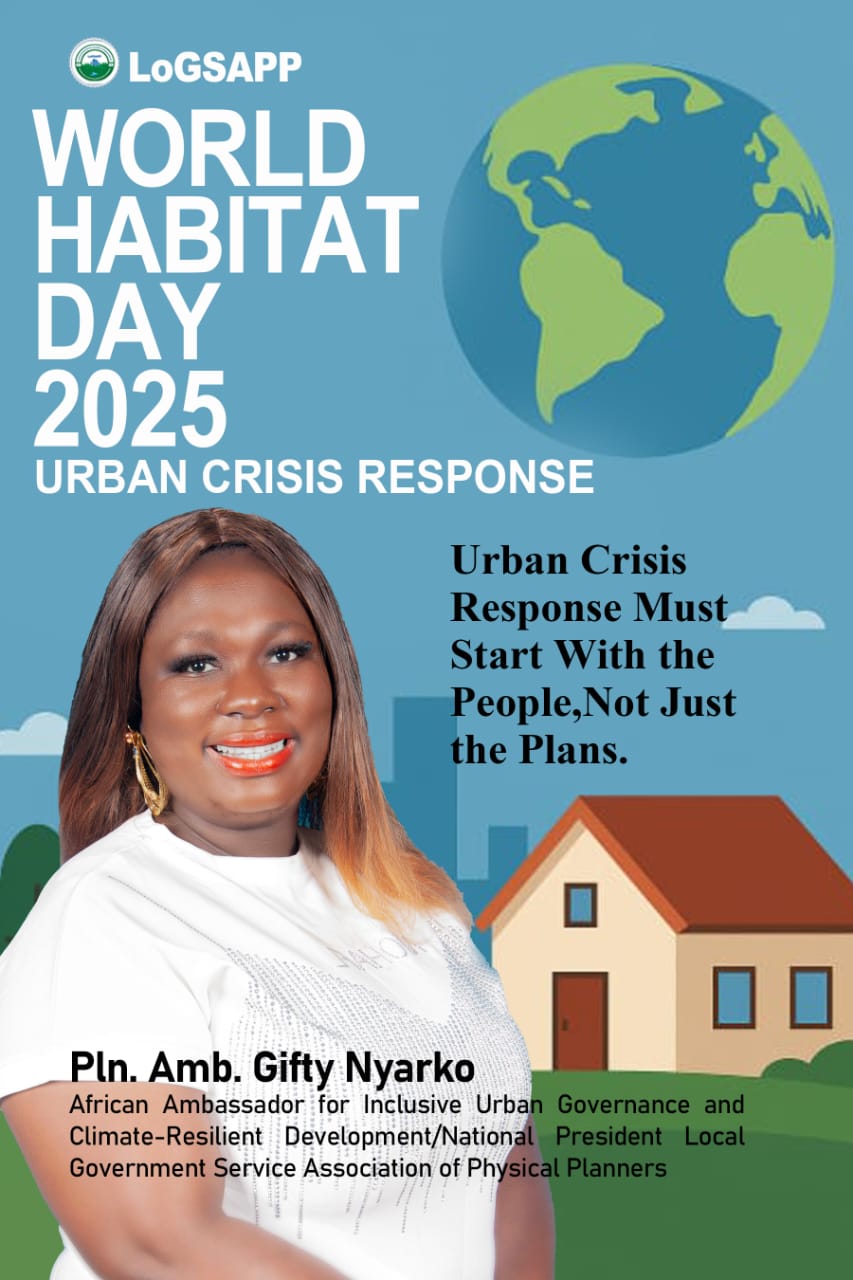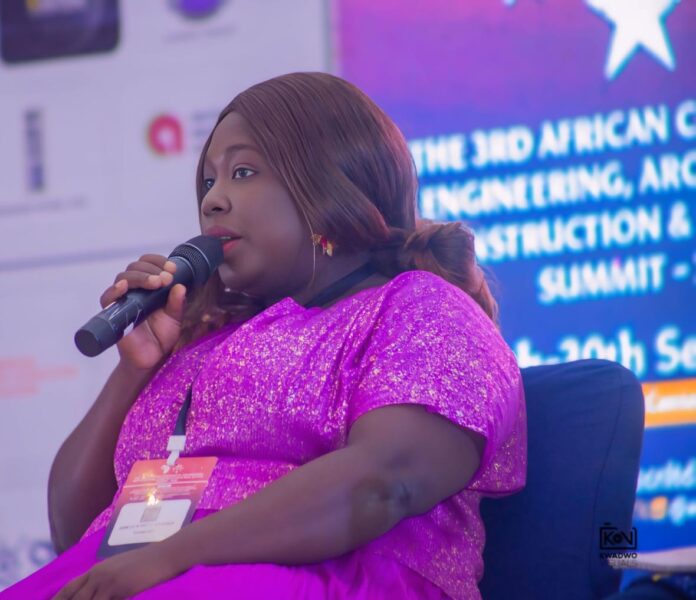Speaking to the press after the official commemoration of World Habitat Day 2025, Ambassador Nyarko, who also serves as the National President of the Local Government Service Association of Physical Planners, said African cities are battling multiple challenges, from climate shocks and displacement to deepening inequality and weak governance systems.
“Our cities are under siege from multiple fronts, climate shocks, displacement, inequality, and governance failures. But they are also our greatest hope. If we act boldly and inclusively, we can transform them into engines of resilience and social cohesion,” she said.

Ambassador Nyarko stressed the need to rethink who gets a voice in urban planning and crisis response. She emphasized that people living in informal settlements, including slum dwellers, women, youth, and displaced communities, must be seen as partners, not just statistics.
“Too often, the urban poor are treated as figures in reports,” she noted.
“But they are the ones innovating at the margins, surviving with dignity, and holding fragile systems together. We must bring them to the table, not leave them in the footnotes.”
She cautioned that any effort to address urban challenges that excludes vulnerable groups is “doomed to fail,” adding that true resilience starts with inclusion.
Turning to the growing threat of climate change, the Ambassador pointed out that African cities are among the hardest hit by a crisis they contributed little to creating.
“It’s unacceptable that communities that have done the least to cause climate change are paying the highest price,” she lamented. “Floods, heatwaves, and water shortages are destroying livelihoods and deepening poverty in our cities.”
She called for climate-resilient urban planning that integrates green infrastructure, nature-based solutions, and stronger regulations to protect vulnerable communities.
“We must stop designing cities for the few while leaving the many in danger,” she added. “Every development decision should ask: who does this serve, and who does it leave behind?”
On the role of government, Ambassador Nyarko said the time has come to move away from rigid, top-down governance models that alienate citizens.
“Modern urban challenges can’t be managed with outdated systems. We need governance that listens, adapts, and includes, especially at the local level,” she said.
She urged city leaders and planners to embrace participatory planning and work closely with civil society and informal sector actors to ensure policies reflect real-life needs.
Ambassador Nyarko concluded with a call for immediate action: “Let’s not wait for another flood or eviction to act. The crisis is already here. But so is our capacity to build cities of dignity, equity, and climate justice.”
She reminded that World Habitat Day should not be just a day of speeches, but a renewed commitment to transform cities into safe, inclusive, and resilient places for all.
Source: Christian Ofori Kumah
READ ALSO:



